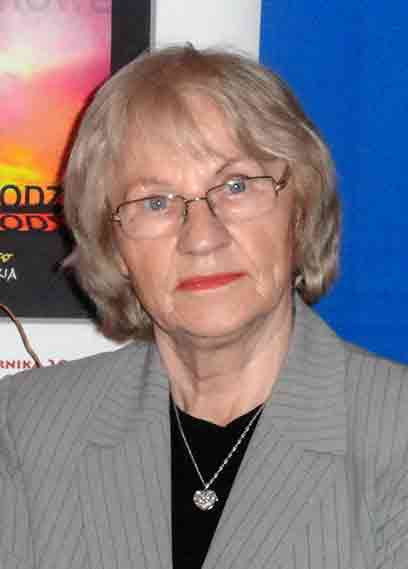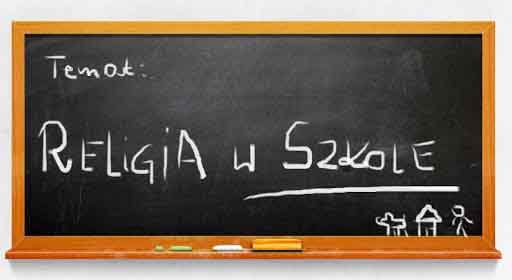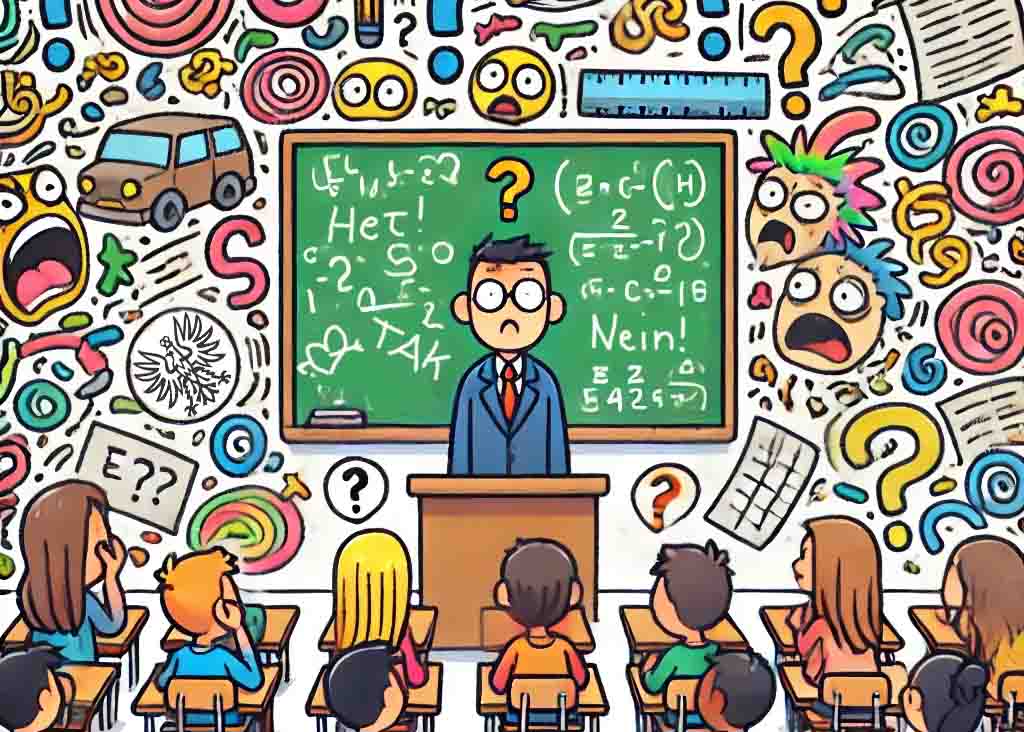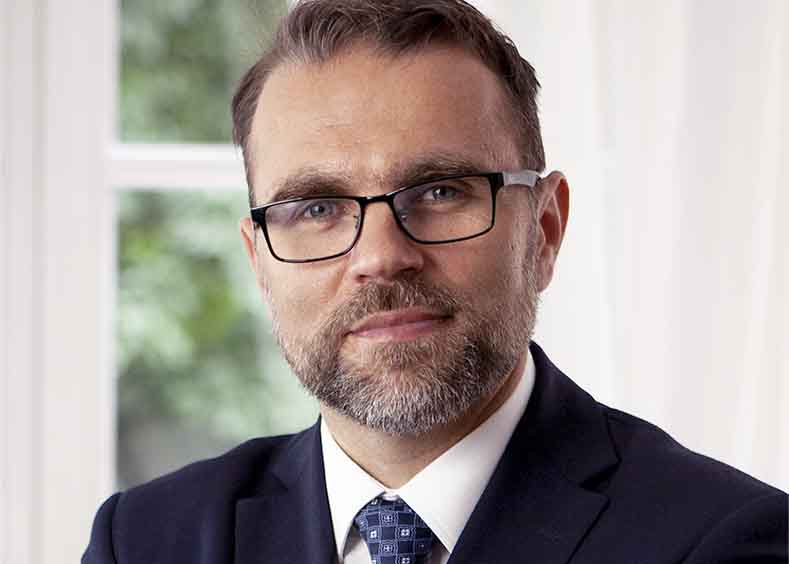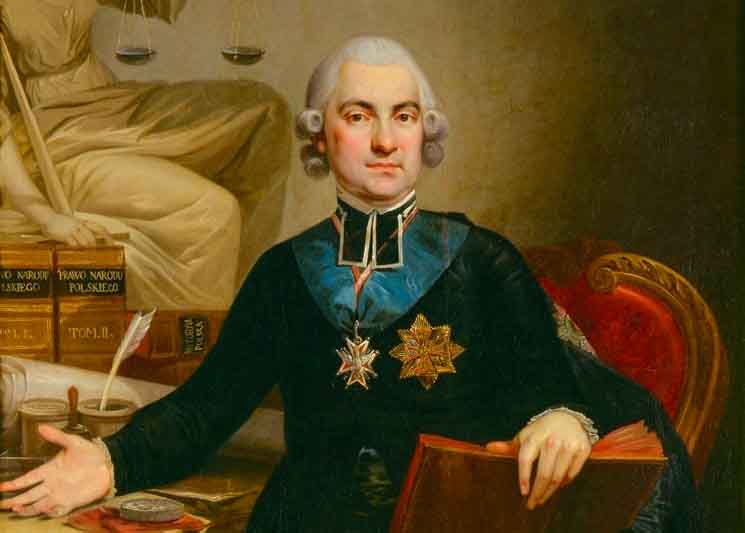A nation that loses its memory ceases to be a nation — it becomes only a collection of people temporarily occupying a given territory. — Józef Pilsudski
Poles Have the Right to Development
For decades, millions of people have been drawn to the United States, attracted by the opportunities for development and a successful life. A perfect example is Polish peasants from Galicia, who often replaced their threshing floor huts with modern houses with wooden floors and electricity. The "rust belt" is full of such houses, and in Milwaukee such houses even have a special name: "Polish flats" (basement for living, upstairs for rent).
From a village near Rzeszów, a simple peasant — Walenty Pienkoś — came to the United States to start the entire Pienkoś dynasty: professors, medical doctors, and lawyers scattered all over the United States. The explosion of civilizational development took place in villages and cities, where various inventions were experimented upon in barns and garages. It was in his garage that Steve Wozniak built the first Apple computer.
10 million American Poles constitute 3% of the total population of the US. This is a great political and financial power that the Polish elites, who — due to their incompetence — have created a narrative of a divided Polish community on the Vistula River, are unable to reach. For 30 years, Polish elites have not been able to make any effort to ensure that the Polish diaspora could create development opportunities for the reconstruction of Polish elites.
Now, when Poland and its entrepreneurs have finally started to build prosperity in the country, as Prof. Marcin Piątkowski from Washington Prof. writes aptly in his book "Europe's Growth Champion: Insights from the Economic Rise of Poland" published by Oxford University Press, the new government wants to stop most of the development investments so necessary to recreate the Polish elites. To meet the new needs of a young society, those with views on the right and left, investments are necessary: CPK, trans-shipment ports, nuclear power plants, army modernization, development of science and education, investments in artificial intelligence, quantum computers, infrastructure development in the broadest sense. All this, so that the country can build a better tomorrow for future generations.
Promoting the famous "Polish plumber" was the greatest disgrace of the Polish state, which, after Poland's accession to the European Union, forced Poland's greatest treasure — the young, creative generation — into emigration, instead of creating conditions for their development in Poland.
There must be a civilizational leap in Poland, the basis of which cannot be to limit the basics of educational curricula. We cannot compare ourselves with those who do not want to acquire knowledge. Politicians in China, South Korea and other Asian countries know this well, where educating young people is one of the most important priorities. They are sent to study in the USA. Even the small Hungary sends its talented graduates to internships at Washington think tanks.
How to Understand the Core Curriculum?
Each community (family, group, tribe, state), in order to maintain its identity and cultural code in order to survive, appropriately prepared its successors to continue activities important to these communities. Young generations were properly trained physically to defend their territory and morally educated to defend the highest values that determined the strength of these communities. These guidelines were not written down in any documents because writing was not known at that time, but they were passed on in the form of family and tribal traditions and religious symbols. It was a kind of core curriculum in the education in those historic times, informing, and even determining, for what purpose, what, and how to teach young generations. Of course, the entire educational system was and is dependent on many conditions, including environmental and geopolitical ones.

(Source: kiddipedia.com.au)
As civilization developed, various educational concepts were born, taking into account the philosophical assumptions of the time, economic needs and social challenges, and setting out the framework of the core curriculum, i.e. a set of teaching content and skills compulsory at a given educational stage and which must be included in the curriculum and which make it possible to establish school grade criteria and examination requirements. The core curriculum shows teachers how to exercise their right and obligation to implement its assumptions.
Foundations of the current core curriculum
The sources of the core curriculum, which is the subject of current interest, disputes, and discussions, should be sought in the 1970s.
In 1972, the Institute of School Programs was established. Its basic tasks included, among others, developing teaching and educational assumptions for general schools.
The Institute's greatest achievement was the development of the document "Primary School Curricula" and "Secondary School Curricula" together with the Ministry of Education and Upbringing, which was implemented into school practice starting with the 1986/87 school year.
The core curricula and the resulting educational standards, defined as learning outcomes and processes, are not developed in a vacuum, nor do they ignore the socio-cultural context of their creation and "operation". They are based on more or less clearly articulated theses regarding the role of school in society, understanding the essence of the education offered, and accompanying philosophical arguments, including those regarding the essence (and types) of knowledge, as well as the ways of acquiring it.
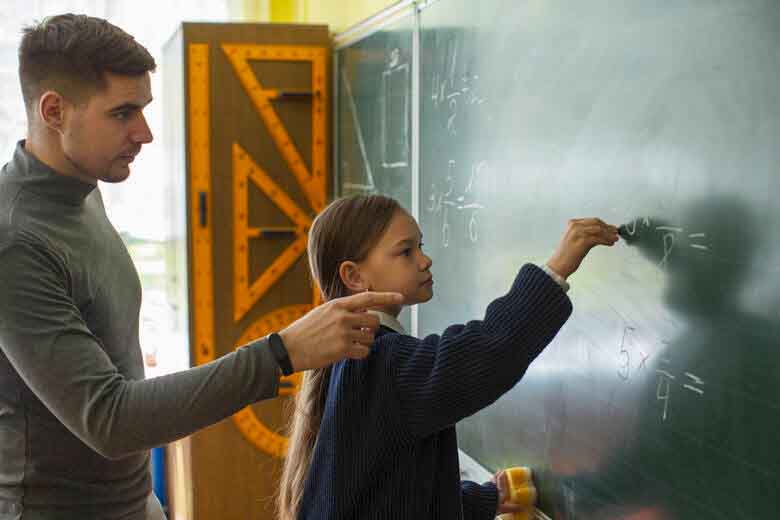
(Source: freepik)
The formulation of psychological foundations in the form of, more or less, explicit references to the theory of human learning and development also turns out to be important. Until the 1980s, communist standards were in force in the Polish core curriculum. After the period of democratic changes, it was time to develop a new core curriculum. Governments changed and concepts of the educational system changed.
The most important reforms of the Polish education system
The idea of universal education appeared already in the 18th century. As the concept of the nation as a community based on language, culture and history developed, more and more supporters became convinced that universal education was necessary to build a modern society. Such ideas can be found, for example, in the writings of Hugo Kołłątaj and Stanisław Staszic.
The unification and popularization of education was one of the greatest challenges facing the Second Polish Republic. Education was not only a civilization requirement, but also an important element in building national identity.
Compulsory schooling and free access to primary education were guaranteed in the March Constitution (March 17, 1921). On February 17, 1922, the "Act of establishing and maintaining public primary schools" was passed. It largely repeated the provisions of Piłsudski's decree, specifying issues related to the organization of the school and its financing. Municipalities were to be responsible for providing school infrastructure. The central authorities took responsibility for paying teaching positions. It was also possible to obtain funding from the headquarters for the construction or renovation of schools.
In 1932, an education reform, called the Jędrzejewicz reform after the then Minister of Education, Janusz Jędrzejewicz, was passed. It unified the school system throughout the Republic of Poland, linked secondary education with general education and created the legal framework for vocational education.
Statistics on the education of Polish society in the interwar period are not encouraging. The vast majority received only primary education at that time. About 4% of the population graduated from secondary schools, while the percentage of people with higher education did not exceed 1%.
The statistics regarding the level of illiteracy are much more optimistic. Between 1921 and 1931, the share of illiterate people in society decreased from about 33% to 23%.
During the period of the Polish People's Republic, an important educational reform was the reform of the education system introduced by the Act of July 15, 1961. The 7th Plenum of the Central Committee of the Polish United Workers' Party was devoted to this reform. The most important part of that reform was the extension of the compulsory education period from seven to eight years.
After the fall of the Polish People's Republic and the great social and political changes of the 1980s, there were several proposals for changes in the education system. One of the most important reforms at that time was the reform of the education system in 1999. This project assumed the introduction of a new structure of the education system, which would be a way to achieve three main goals:
- raising the level of education in society by popularizing secondary and higher education,
- equalizing educational opportunities
- supporting the improvement of the quality of education, understood as an integral process of upbringing and education.
It was, on the one hand, a return to the Polish traditions of the interwar period and, at the same time, a closer approach to the education models operating in Western Europe. However, it was, above all, a structural reform carried out during the government of Jerzy Buzek, which led to the transformation of the two-level education system in force since 1968 into a three-level structure:
| 1. | 6-year primary school |
| 2. | 3-year junior high school |
| 3. |
3-year general secondary school 3-year specialized secondary school 4-year vocational technical school 2- or 3-year basic vocational school |
Moreover, the so-called core curriculum and a certain degree of freedom in teaching programs based on it was introduced then — a new system of secondary school leaving examinations and final examinations at individual stages of schools.
In the following years, system changes were improved.
And so, on September 1, 2012, an act came into force which, in 2014, abolished three-year specialized secondary schools as well as two-year supplementary general secondary schools and three-year supplementary technical secondary schools.
The reform of 1999 did not bring the expected changes, it did not raise the level of education, but rather lowered it, and in terms of the educational system it turned out to be a failure. Today, the marginalization of vocational education has its consequences in the form of a lack of craftsmen, especially in construction and services. Research conducted at that time showed that over 70% of the population was in favor of changes in the education system at primary and secondary levels.
Another important reform of the education system took place in 2017. That year, laws and regulations came into force introducing a new reform of the education system consisting in the gradual liquidation of junior high schools introduced in 1999, the restoration of 8-year primary schools, 4-year general secondary schools and 5-year secondary schools, summer technical colleges, and the transformation of basic vocational schools into two-tiered ones.
"Slimming down" the Core Curriculum
After the elections on October 15, 1923 and the United Coalition coming to power, Donald Tusk became Prime Minister and Barbara Nowacka became the Minister of Education. "Regarding the level of education" of the young generation, the new government plans to carry out another educational reform. It comprises: salary increases for teachers, changes in education boards, "slimming the core curriculum" of seventeen subjects [currently] included in the curriculum in primary and secondary schools.
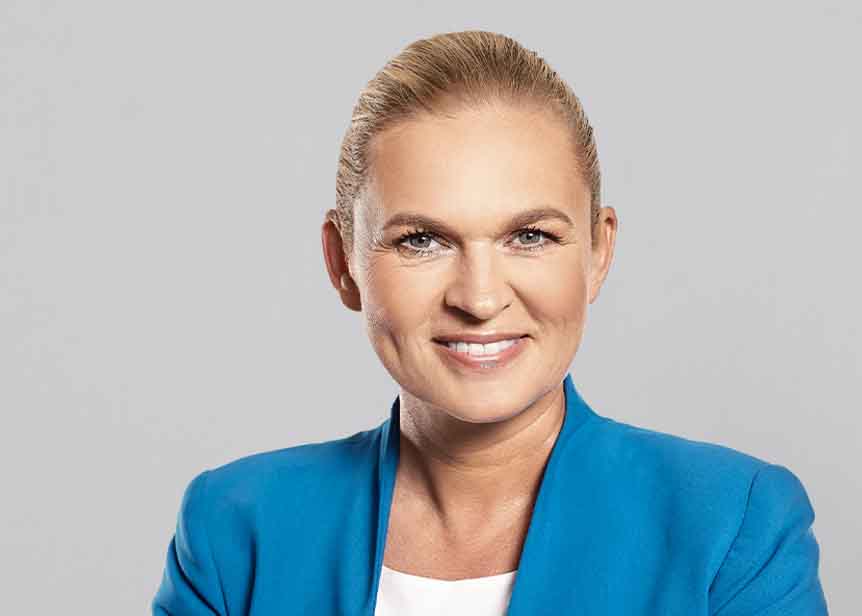
Minister of Education Barbara Nowacka. (Source: Ministry of National Education)
Proposals for changes in the core curriculum start with abandoning homework, limiting the number of hours of religion to one per week, and eliminating the "History and Present" subject within the current formula.
According to the Ministry of National Education, "the purpose of changing the core curriculum is to limit the mandatory scope of teaching content, which, while maintaining the current number of hours, will enable teachers and students to implement the content more calmly and in-depth, resulting in more effective education."
On February 12, a project to slim down the core curriculum in individual subjects by 20% was announced on the Ministry of National Education's website and interested parties were invited to pre-consultations, which ended on February 19.
The most controversial issue is the "slimming down" of the history and Polish language core curriculum.
- Questionably, many important, elements have been deleted from the history curriculum, e.g. from the entry "the student characterizes various attitudes of Polish society towards the occupiers", "occupiers" were removed,
- Examples of national heroes were removed: Witold Pilecki, Saint. Maksymilian Kolbe, Jan Karski's mission and the role of "Żegota".
- Zawisza Czarny, the Grunwald victory, Prior Kordecki, Stefan Czarnecki, Danuta Siedzikówna "Inka" were removed from the list of people and events that a student of grades 4-6 should be able to talk about.
- The achievements of Bolesław Krzyowusty and the conflict with the German Empire were erased from the early Piast period.
- Relations with the Teutonic Order were deleted from the period of the division into districts.
- In the process of unification after the division into districts, the role of the Piast rulers and the church was eliminated.
- Poland's connections with Hungary in the times of Jadwiga and the first Jagiellonian dynasty were also deleted.
- The role of the Prussian homage was removed (next year is the 500th anniversary of its passing),
- The progressive Polish economic and political reforms in the 18th century were omitted.
- The contribution of Poles to the fight for American independence was omitted.
- The circumstances of the uprising of Henryk Dąbrowski's legions were deleted.
- Examples of special heroism of Poles during World War II were deleted, such as the defense of the Gdańsk post office, Westerplatte, the battles of Mokra, Wizna, Kock, and the defense of Warsaw.
- The entry on the "Volhynia massacre" was removed from the core curriculum and replaced with the "Polish-Ukrainian conflict."
A lot of concern, both among teachers and parents, is caused by the removal of items such as the Bible from the list of core curriculum readings, including "Song of Songs", "Catechism of the Polish Child" by W. Bełza, "Rota" by M. Konopnicka, "Dismissals of Greek envoys", "Lamentations" (only I will remain) and translations of "Psalms" by J. Kochanowski, religious songs (including the Christmas carol "God is born") by Fr. Karpiński, "Konrad Wallenrod" and "Pan Tadeusz" by A. Mickiewicz (fragments will remain), "Chłopi" (only volume I remains) by W. Reymont, "Sysyphus' Labors" by B. Prus, "The Ravens, Crows Will Peeve Us" by S. Żeromski, and many other classics that are important because they develop patriotic attitudes and promote timeless values.
Many issues related to the theory and culture of language were also omitted, without which it is difficult to read journalistic texts and absorb messages expressed within new genres of art. It is difficult to understand, for example, the use of phraseological constructs derived from the Bible or mythology without any knowledge of these works. Just as it is difficult to evaluate architectural monuments without basic knowledge of philosophical trends.
This is only a small part of the proposed changes in the slimming down of the core curriculum. These are also changes for the next two years only. Then the proper, major reform will be implemented. We are afraid that the reform broom will sweep and clean the base completely.
As part of the pre-consultation, the Ministry of Education received 52,262 comments regarding changes to the core curriculum of general education. Most of them concerned history (31,411), Polish language (11,920), "history and present" (2,820), and biology (1,519). The Ministry of National Education and the education experts cooperating with it must take respondents' opinions into account.
Conclusion
Limiting the core curriculum in the field of national identity is a disgrace and a way of social engineering, which is supposed to create a new man, smiling, but deprived of the cultural code that has held this nation together for a thousand years. We cannot afford to lose this most important part of Polish society — the future elites of the Republic of Poland.
Translation from Polish by Andrew Woźniewicz.



